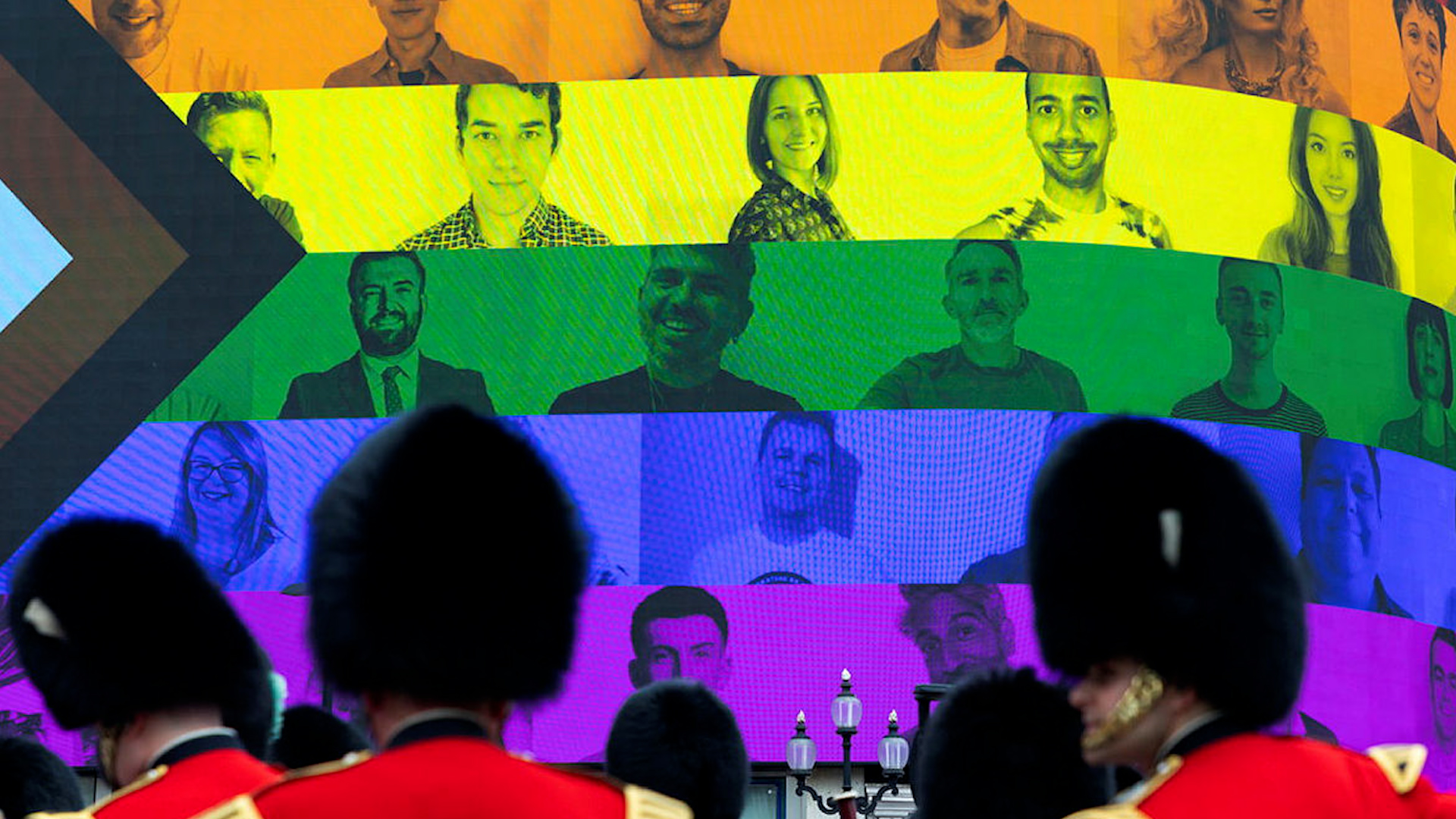
LGBT veterans wait to see whether payout for mistreatment they endured will be increased

Armed Forces veterans who were discharged due to their sexual orientation are awaiting details about compensation for the historic mistreatment they endured, amid criticism of the proposed payout.
Last year, a major inquiry made 49 recommendations including compensation payments for LGBT veterans who lost their careers before 2000 – when the ban on gay and bisexual people serving in the military was lifted.
This week, MPs will take part in a debate on the next steps to making amends to those LGBT ex-servicemen and women who faced historical mistreatment in Britain's Armed Forces.
Background on the so-called gay ban
Veterans who suffered mistreatment in the Armed Forces under the "gay ban" are hoping details of a financial redress scheme could finally be revealed to them this week.
Under the ban, serving members of the Armed Forces who were discovered to be LGBT were subject to brutal interrogation, dismissal and, in some instances, imprisonment.
Some faced lifelong consequences including diminished career prospects, being vilified by family and friends, and no access to their military pensions.
Government's response
Those impacted have already been offered an apology from the government and the restoration of their medals – two other recommendations from Lord Etherton.
However, one step yet to be taken is to pay compensation.
The review recommended this be capped at £50m, but veterans, campaigners and MPs have said this amount will not be enough to truly make up for what they experienced.
Criticism of compensation
Critics, including Fighting With Pride, argue the proposed amount is insufficient compared to similar compensation schemes.
The charity says the total compensation liability – if unchanged – will equate to just £12,500 per claimant, which is significantly less than victims of the contaminated blood scandal or the recent Post Office Horizon scandal.
Fighting With Pride has called on Labour to honour promises it made in opposition and reconsider the cap – raising it to provide more compensation for LGBT veterans impacted by the ban.
Talking to BFBS Forces News, Fighting With Pride campaigns director Craig Jones, who served in the Royal Navy before and after the "gay ban" was lifted, said it had been a long journey to get this far since the year 2000.
He said: "This has been a very long journey for LGBT+ veterans and they await news which brings a once-in-a-lifetime opportunity for the Government to return to their lives a sense of justice and the comfort and security in older age we wish for all veterans.
"On Thursday, we can only hope that defence remembers and recognises the veterans affected by a policy that did a great deal of damage."
Veteran perspectives
Tremaine Cornish, an Army Commando who earned a prestigious green beret, said he had faced lifelong consequences after he was made to leave the forces in the 1970s, and urged the government to lift the cap.
Mr Cornish told PA he was "close to being homeless again", which he linked back to the loss of his military career.
He added: "I look at how people who had a full career, as we all anticipated, and have done well. I know many I joined up with who got commissions and did well and now have a nice home.
"Now I am in a situation where I have been told by my housing association 'you have got to go, because we are getting rid of the property'."
Charities, including the Royal British Legion and Stonewall, have joined Fighting With Pride in lobbying for the compensation cap to be lifted, as have some MPs.
But in correspondence with parliamentarians, ministers have insisted the proposed payments should not be referred to as compensation, or compared with the financial packages for the Horizon and infected blood scandals.
The Press Association understands this is because the scheme is not viewed by the government as recompense for LGBT veterans for lost earnings they may have suffered because of the ban.
As MPs prepare to debate the matter, veterans and advocacy groups await the government's decision, hoping it will mark a step toward justice and reconciliation.
The Ministry of Defence has previously said it deeply regrets how LGBT Armed Forces personnel were treated between 1967 and 2000 when the ban was in place.
It was "wholly unacceptable and does not reflect today's Armed Forces", the government department said.








